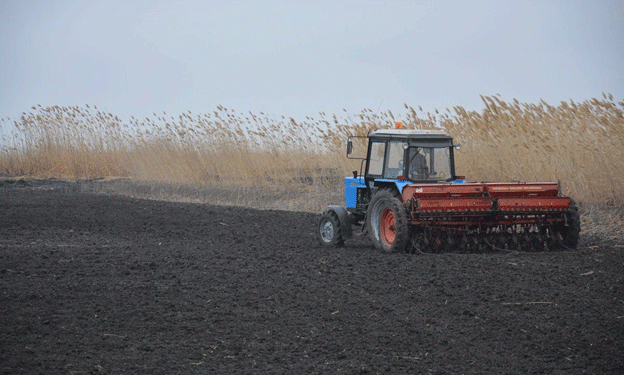The 2025 spring sowing campaign is well underway in the Yakovlevsky District of Russia’s Belgorod Region. Local agricultural enterprises have already planted early spring grains and legumes over significant areas, with a total target of 15,637 hectares planned for sowing this season.
As of mid-April, the following crops have been planted:
- 1,576 hectares of spring barley
- 150 hectares of peas
- 56 hectares of oats
- 970 hectares of spring wheat
Notably, the sowing of spring barley has been successfully completed by enterprises such as LLC BGK-Tomarovka named after Vasiliev and LLC Butovo-Agro. Additionally, LLC Agroholding Ivnyansky PO Gostishchevskoye and LLC BGK-Tomarovka have fully completed the sowing of their spring wheat fields.
According to the Russian Ministry of Agriculture, spring sowing across Russia as of April 15, 2025, has been conducted on over 4.9 million hectares, which represents approximately 23% of the planned spring crop area for the country. Belgorod Region, known for its fertile black soils and high-intensity farming, continues to be a leader in sowing pace and crop yield potential.
Peas and oats, although occupying smaller areas, are gaining strategic importance in crop rotations due to their benefits for soil health and feed value. Spring wheat remains a staple for food security and export potential, especially in the context of increasing demand from North Africa and the Middle East.
From a technological standpoint, farms in the Yakovlevsky District employ modern sowing complexes, GPS-monitored machinery, and digital agronomic planning tools, enhancing planting precision and optimizing labor. These practices reflect a broader trend across Russian agriculture — the adoption of AgTech solutions to boost productivity amid climate and market volatility.
The rapid progress in the 2025 spring sowing campaign in Yakovlevsky District showcases the efficiency and resilience of local farms. With nearly 2,750 hectares already planted under early crops, the region is on track for a successful growing season. As precision farming tools and sustainable crop rotation practices continue to spread, the agricultural sector remains robust and ready to meet both domestic and international demand.
Error





